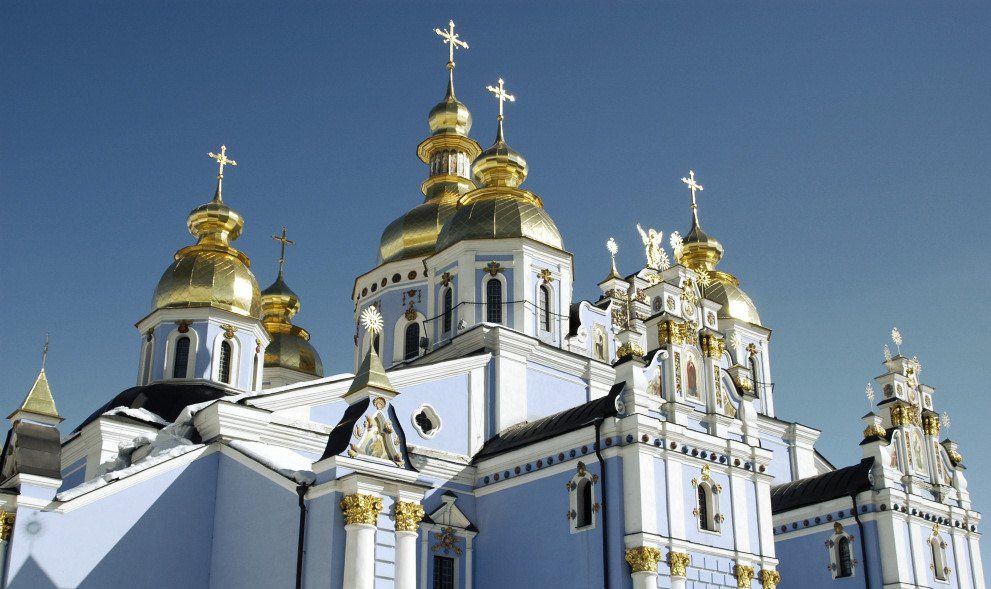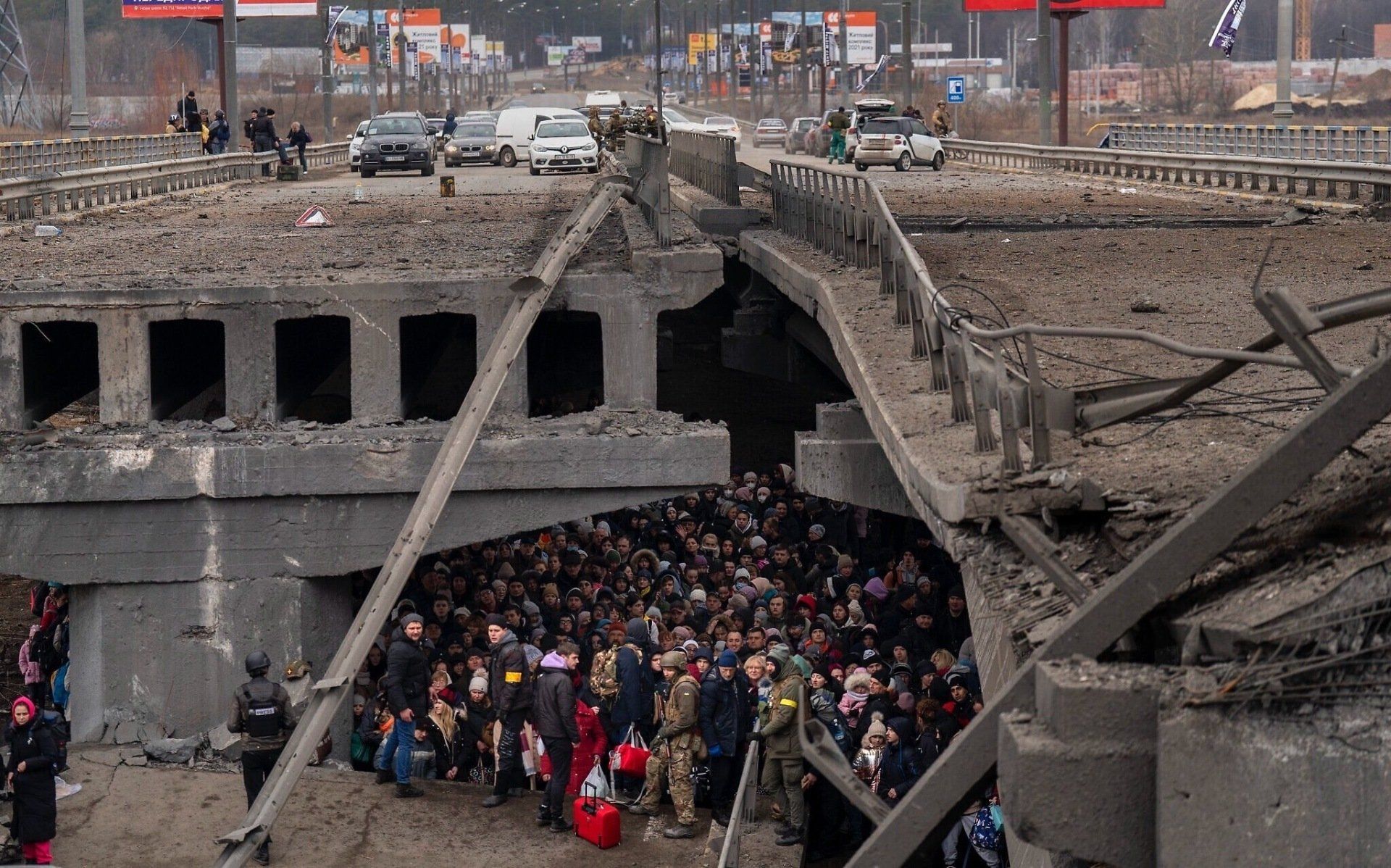The Lust for Power

Dom Brendan reflects on the Gospel reading for the 1st Sunday of Lent.
“You must worship the Lord your God, and serve him alone”
In the spring of 430, in the inconspicuous town of Hippo, in North Africa, the man who would later be known as St Augustine was close to death. You could say he was dying a deeply disappointed man. He had spent two years writing a book about how the world was falling apart. The City of God, as it was called, charted the decline of the Roman Empire and asked why this supposed invincible beacon of civilization had fallen. As he lay in his bed the barbarians were at the door. A Germanic tribe known as the Vandals had besieged Hippo and was burning it to the ground, killing its soldiers, and making off with its young woman.
The Romans were, on the whole, a confident optimistic lot. They had faith and pride in themselves: their technology, their power, their own self-mastery. They trusted that they could build that ideal society marked by justice, justitia. But Augustine was clear in his mind that there is no true justice in a society that refuses to give God his due. “You must worship the Lord your God, and serve him alone” as Jesus says today. Not power, not wealth, not self. The citizens of the City of God refuse to worship the false gods of this earth.
Augustine was a disappointed man because he knew that in this life we are doomed to remain incomplete, unsatisfied. This might sound rather depressing, but he had simply come to terms with the imperfect nature of all that we do. When he was young, he thought he could achieve everything. The world was his oyster. But in his old age all he could do was long, with a restless heart, for a perfection that is not of this earth, for that other place, way over yonder, that other shore, where beauty, peace and justice await us, where Love reigns.
Because he saw that here on earth we are all dragging the old Adam along. We are heirs to that original fall, and our human nature gives rise to what he called a ‘libido dominandi’, a desire to dominate, to control, be in charge, to defeat an opponent, to win an argument –humanity's number one problem. It is an animal instinct that ran as a dark current through the history of the Roman Empire. It runs through all human history, from that first pair of brothers, Cain and Abel down to our own day. It is evident in the brutal and often merciless way we treat others. The lust for power, the urge to dominate.
In the wilderness of our earthly existence, our Lord is tempted. “I will give you all this power and the glory of these kingdoms… Worship me, then, and it shall all be yours.”
- - - - - - - - - - - -
What is this barbarism in the mind of Vladimir Putin as he sends his tanks and his bombs, to surround cities where people were loving and praying, shopping and eating, singing and dancing like the rest of the world, just a couple of weeks ago? Why, oh why, has he unleashed such brutality? Why is he telling such untruths? It is at the cost not just of the Ukrainian people but his own good people in Russia - not forgetting the young conscripts he has sent to the front line to fight.
Edward Gibbon in his Decline and Fall of the Roman Empire says: “Of all our passions and appetites, the love of power is of the most imperious and unsociable nature, since the pride of one man requires the submission of the multitude.”
The pride of one man, the submission of a multitude. Is the power and the glory of the Kingdoms that Satan offers worth the tears of children and the heartbreak of a people? We could all cry because it is so unnecessary. Already over a million and a half refugees, lives upended. Augustine knew that bad things can happen in this life, but such wilful aggression, is the rotten fruit of the sin of Adam, the libido dominandi.
If you want something to pray this week, take the Book of Lamentations and implore God that the worst does not come to pass. “Cry aloud, then, to the Lord, groan, daughter of Zion; let your tears flow like a torrent, day and night; give yourself no relief, grant your eyes no rest. Children and old men are lying on the ground in the streets; my virgins and my young men have fallen by the sword; you have killed on the day of your wrath, you have slaughtered pitilessly.”
In the opening sentence of The City of God Augustine tells us why he picked up his pen. He says he wanted to “defend the glorious city of God against those who prefer their own gods to the Founder of that city [Jesus Christ].”
The
libido dominandi is tied to what he calls the
incurvatus in se -the inward curvature towards to the self. The the lust for domination is all about the self. Making everything about me. Do we all do that in small ways? Is not a task for Lent unbending ourselves, straightening ourselves, to look out towards others instead of being preoccupied with ourselves.
- - - - - - - - - - - -
We can’t help being impressed by the courage and determination of the Ukranian people, and by the leadership of President Zalensky. In contrast to the habit of dictators to have their portraits pinned in every public place, Zalensky told the lawmakers in his inaugural address in 2019: “I do not want my picture in your offices: the President is not an icon, an idol or a portrait. Hang your kids’ photos instead, and look at them each time you are making a decision.”
Let’s keep the children of Ukraine before us and pray they feel no pain, know no loss and shed no tears. Let us pray that their homes, their land, their future, their hope is not stolen from them by that twisted sin of Adam, the lust for power, and urge for domination, the pride of one man.










